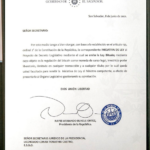A week on Monday we were asked by the Director of the Practice to prepare a short and sharp text on the work we do so she can make a push for it before her departure.
Here is what we prepared with inputs from the egov team.
Cheers, Raúl
Almost two years to the date when I joined UNDP, the events that triggered the Arab Awakening started to unfold in Sidi Bouzid, Tunisia on 18 December 2010. A few months later regime changes took place in several countries in the region, thus providing a new space for enhancing the support we provide to developing countries in the area of Democratic Governance.
The Arab Awakening also brought back to the forefront the relevance that old and new Information and Communication Technologies (ICTs) have not only in opening democratic spaces but also in giving voice to those who previously have had none. Today, we are witnessing a renaissance of sorts in this area of work as more countries, development agencies and practitioners, and social innovators are harnessing ICTs in strategic ways to foster both human development and long-term resilience.
I believe we played a role in all this. During my entire directorship, I fully supported UNDP’s ICT for Development and e-governance efforts, being conscious that the organization has been a pioneer in this area of work which commenced at the Rio Earth Summit in 1992.
If UNDP is to be seen as an innovative, global thought leader, it must not slacken efforts in this arena. We risk losing ground in the development space if we disregard one of the most traits of the 21st century — the “democratization” of the access to ICTs, and it implications for development agendas.
Our inroads in areas below must therefore be guarded against institutional inattention, lest we place UNDP in the sidelines and miss making the most of millennial opportunities:
- Support to Country Offices: In the last 5 years, we have provide policy and programme support to more than 60 Country offices. We have also funded innovative programmes such as Madagascar’s Wisdom of the Crowds youth initiative, supported the modernization of the National Social Security Agency in Costa Rica and worked with persons with disabilities in the Balkans and Eastern Europe. There is also an increased demand for HQ support as recently articulated by over 30 Country Offices that participated in the joint BDP-BCPR community of practice (COP) workshop in Istanbul earlier in May this year. In anything, UNDP needs to augment its support for this area of work which can lead to new development resources that could otherwise remain unaccessible. We need to reaffirm our support to Country Offices in this context, to maintain our relevance as core source of guidance and as partner of choice.
- Strategic global partnerships: We have established a foothold in key global arenas such as the Broadband Commission and the Open Government Partnership (OGP). In the former, we serve as focal points for the Administrator in her role as Chair of the high-level Working Group on Gender; in the latter, we have become one of the six official partners (with OECD, World Bank and the three other regional Banks). These engagements have increased UNDP visibility as an organization that can quickly adopt innovation and cater to the needs of our client countries is agile fashion.
- Working with UN agencies: This is one area I am pleased to report significant progress in as well, given that our work is deeply interlinked with other UN agencies. We are permanent vice-chairs in the CEB and SG-backed UN Group of Information Society (UNGIS), which oversees the implementation of WSIS outcomes (World Summit on the Information Society). Through our efforts and in response to ECOSOC resolutions, the Administrator has requested RR/RRCsm through UNDG, to incorporate ICT for development components in the UNDAFs. UNDP has established itself solidly in the ICT field through these platforms, with a leading seat at the table with at least 30 other global agencies, including UNESCO, ITU, UNCTAD, DESA, the World Bank, etc.)
- Mobile technologies and Innovation: Since 2010, we started to support the use of mobile technologies for development, at a time when most others were focusing on the Internet and social networks. We are heartened by the interest in innovation particularly within our organization, but we need to maintain focus on development impact, local context, and the role of social innovators in the global south. UNDP should support local capacities and the development local solutions to local needs. With these in mind, we launched in June 2013 in Kenya an international network of social innovators for human development which is now growing across the various regions. At any rate, we focus on where it matters most — impact of new technologies on the lives of the poor, the vulnerable and the marginalized, women and youth included. Our emerging focus on innovation must be linked to these and to what we have been doing on the ground since 1992.
- Increased private sector partnerships: Among the world’s top businesses are ICT companies, with whom we were able to establish relations, based on our work. I am pleased to report that the bulk of our e-governance work had been supported by these partners, and we expect increased commitments from here on. In 2010 we partnered with IBM and supported a global meeting on government interoperability frameworks to engage public service delivery. We are now in talk with IBM again to host another meeting on Open Cloud computing. Last year we secured a grant from Motorola to support the use of mobile technologies for development in Low Income Countries. Working closely with BERA and RBLAC we are supporting efforts to close a partnership with Spain’s Telefonica which could bring important financial resources to the organization. Finally, we are also re-engaging with Microsoft, in partnership with UNITAR, to secure a contribution of 5 million USD to support e-skills building in government, following on the work we have been doing in South Africa with the e-Skills Institute.
Let me reiterate that we have accomplished much in this area of work, and we risk UNDP leadership in this field if we are be seen as withdrawing critical support to countries at a time when they are increasingly persuaded of the potential of ICTs for human development.





